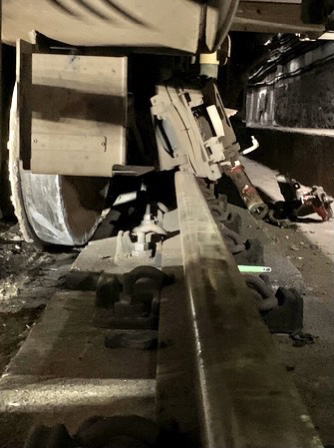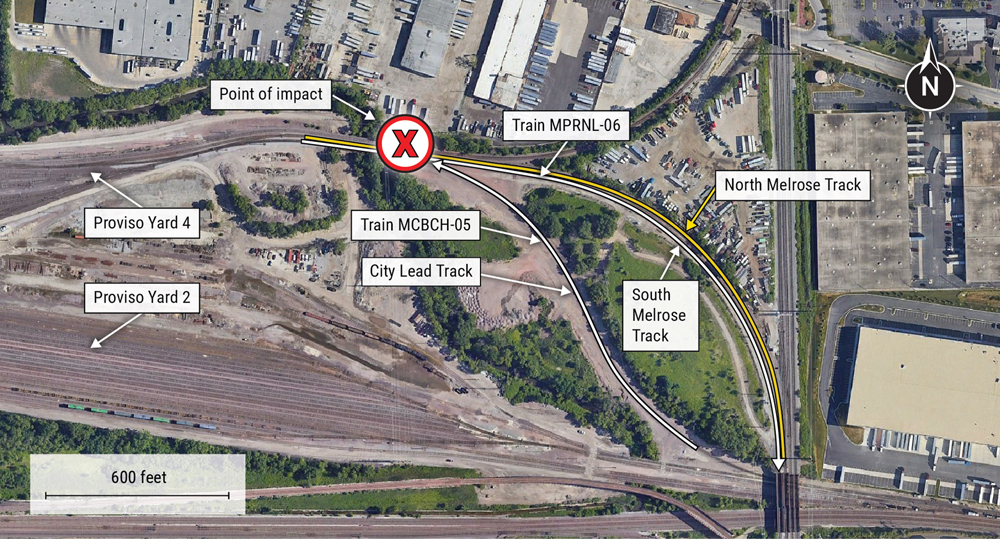
WASHINGTON — The Washington Metropolitan Area Transit Authority will re-press all the wheels on its 7000-series railcars to address a problem with wheel movement, a process that will take as much as three years and cost about $55 million.
DC Metro made the announcement Tuesday, saying the plan was based on technical information released that day by the National Transportation Safety Board released as part of the public docket from the October 2021 derailment that revealed the wheel problem. The docket consists of more than 1,400 pages of documents.
“We appreciate the NTSB making the technical reports available so that we can develop our plan to begin repressing wheels on these trains at a higher standard, including the fit onto the axles,” Metro Chief Operations Officer Brian Dwyer said in a press release. “We are preparing the technical documents and training plan, while we collaboratively advance the next version of our return to service plan for approval by the Washington Metrorail Safety Commission.”
Investigations in the wake of that derailment found that wheels on the 7000-series cars could shift slightly on their axles, a problem the re-pressing — at a higher amount of pressure — is supposed to address. That discovery has led to the sidelining of most of the 7000-series cars, which make up the majority of WMATA’s Metrorail fleet, since the accident. This, in turn, has caused a prolonged decrease in service.
“The process of changing all 5,984 wheels on 2,992 axles for 748 railcars may take a couple of years to complete,” Dwyer said. “We thank our customers for their patience and want them to know that the good news is we will be able to fix about 20 cars a month to safely build up more trains and restore the safe, frequent and reliable service the region needs.”
The public docket from the Oct. 12, 2021, derailment in Arlington, Va., is heavy on technical reports, reflecting the attention that has been paid to the wheelset issue. The NTSB has yet to complete its final report, which will include the probable cause, as well as findings and recommendations. The investigation has already led to a safety alert regarding the possibility of shifting wheels, which was issued in November 2021.
The docket includes three separate investigations of the wheelset issue — a report from engineering consultant Hatch-LTK (the largest single document in the docket, at 311 pages); a report from MxV Rail, the technical affiliate of the Association of American Railroads, under a contract with Metrorail; and a report by railcar manufacturer Kawasaki.
Metro’s summation of the MxV report notes that Hatch-LTK and Kawasaki both conclude the likely cause of the wheel movement is “microslip induced by loss of contact pressure,” while MxV did not reach a definitive conclusion but theorized “vibration environment and differential temperature” could be causes. All three reports, however, agreed an increase in the press tonnage and interference fit would address the microslip as well as the theories advanced by MxV.














“Those who are ignorant of history are doomed to repeat it.” – George Santayana. When a wheel came off of a new New Haven Line M2 car and rolled into a parking lot the problem was eventually traced to the use of hollow axles to save weight. In that case the issue was “micro movement ” of the bearing races. The WMATA 7000 cars have hollow axles.
Would brand new wheelsets from the manufacturer, with wheels properly set, be a faster conversion? You would just be swapping, rather than heavy work on a removed set which then has to be tested and replaced. Maybe 40 per month?
Re-pressing seems like an over simplification. The only way to get the wheels to fit tighter is to increase the diameter of the axle or decrease the diameter of the hole in the wheel. Can that be done with weld metal and machining or are they going to have to buy a bunch of new parts?
Who pays?
Does anyone with legal knowledge understand why what seems to be a manufacturing defect is not the responsibility of the manufacturer? Is it as simple as the time passed since manufacture? Thanks.